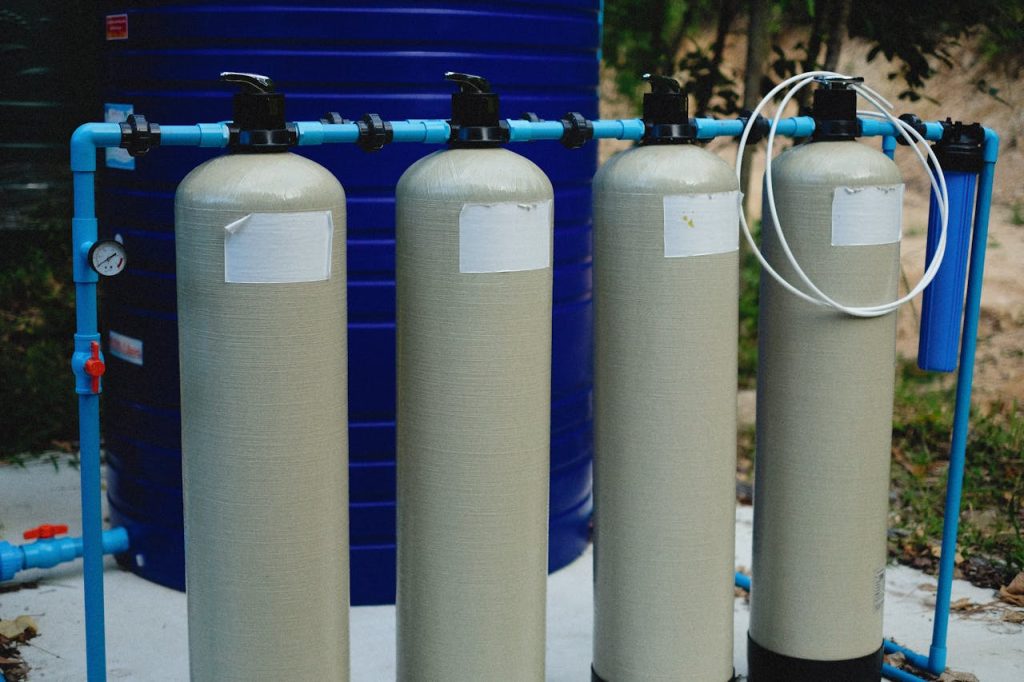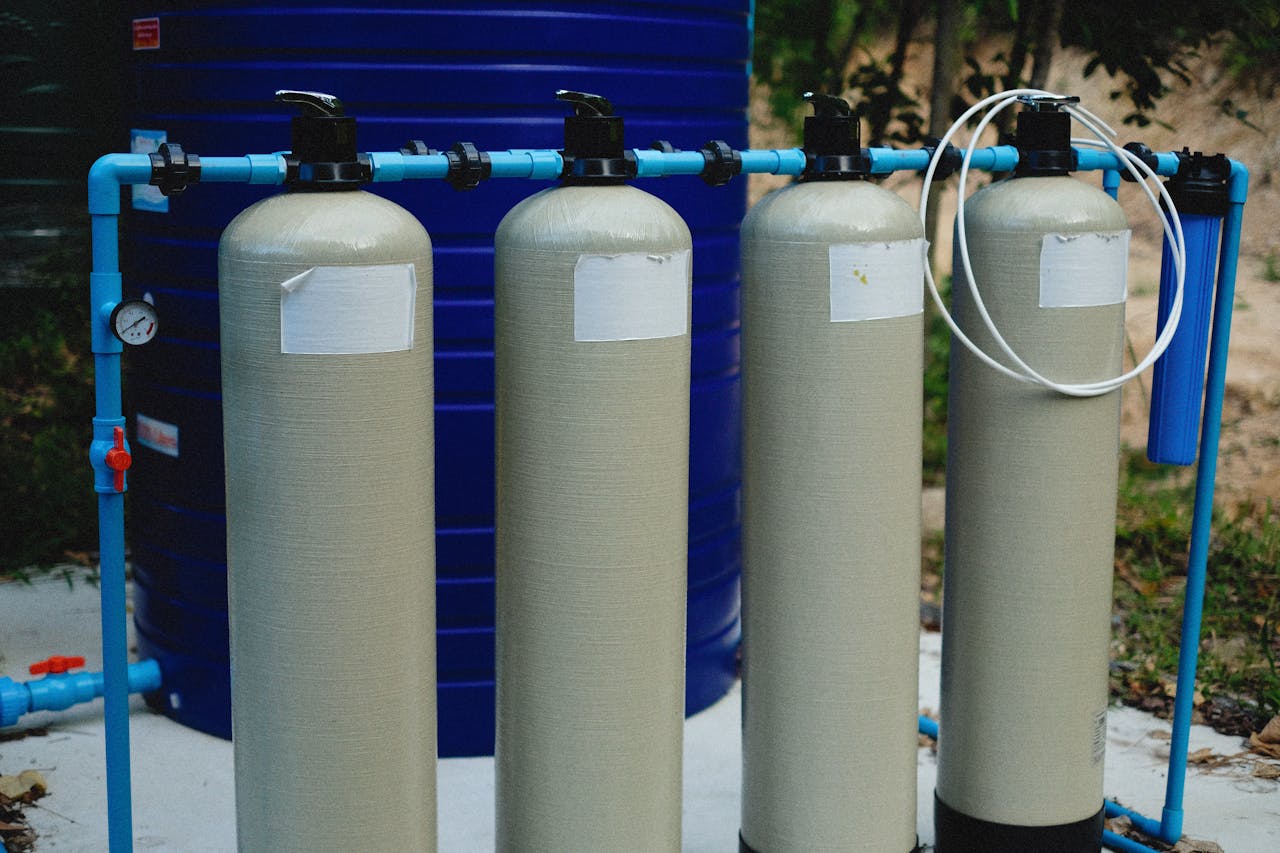In industries that rely heavily on boilers, cooling systems, and other water-fed equipment, water quality is everything. Yet, many overlook one silent culprit that steadily reduces performance and shortens lifespan: hard water. Filled with dissolved minerals like calcium and magnesium, hard water causes scaling, clogging, and corrosion.
That’s where water softeners come in. More than just a filtration system, softeners are one of the smartest investments you can make to protect industrial equipment, reduce maintenance costs, and ensure uninterrupted operations.

What Is Hard Water, and Why Is It a Problem?
Hard water is simply water that contains high levels of dissolved minerals. While harmless to drink, it’s harmful to machines. When hard water runs through your equipment, it leaves behind a mineral buildup known as scale.
Scale doesn’t just look bad, it coats internal surfaces, insulates heat transfer surfaces, clogs pipes, and puts strain on pumps. Over time, this buildup reduces efficiency, increases energy consumption, and forces systems to work harder, leading to more frequent breakdowns and costly repairs.
The Role of Water Softeners in Industrial Systems
Water softeners solve this issue by removing hardness minerals through a process called ion exchange. In simple terms, softeners replace calcium and magnesium ions in the water with sodium or potassium ions. The result is “soft” water that doesn’t form scale or corrode internal parts.
For industrial operations, this change is game-changing. Softened water improves system efficiency and extends the life of every component it touches.
Benefits of Installing Water Softeners in Industrial Facilities
1. Extends Equipment Life
Equipment exposed to hard water suffers from internal buildup that gradually wears it down. Softened water helps maintain clean pipes, boiler tubes, and heat exchangers. This significantly extends the working life of assets, delaying replacement and reducing downtime.
2. Prevents Scale-Related Failures
Scale acts like insulation on heat transfer surfaces, forcing your systems to use more energy to maintain the same output. By eliminating scale formation, softeners allow your systems to run more efficiently and avoid unexpected failures.
3. Reduces Maintenance and Repair Costs
Hard water can cause frequent shutdowns and maintenance issues. Scaling, corrosion, and component wear all require attention. With softened water, your team spends less time fixing problems and more time optimizing performance.
4. Improves Energy Efficiency
Boilers and cooling systems work much harder when scale is present. According to industry studies, even a thin layer of scale (just 1 mm) can reduce heat transfer efficiency by over 10%. Soft water keeps surfaces clean, allowing systems to operate at peak energy performance.
5. Boosts Operational Consistency
Inconsistent water quality leads to unpredictable results. Production may vary, cleaning cycles may take longer, and output quality might suffer. Softened water brings stability and predictability to water-fed systems, which can dramatically improve overall process control.
Where Water Softeners Make the Most Impact
Water softeners are especially valuable in industries that rely on boilers, heat exchangers, sterilization systems, or cooling towers. This includes:
- Food & Beverage Processing
- Pharmaceuticals
- Manufacturing Plants
- Commercial Laundries
- Hospitality (Hotels & Resorts)
- Hospitals and Healthcare Facilities
In these environments, even a small improvement in efficiency or a slight reduction in equipment failures can lead to major cost savings over time.
Choosing the Right Softener System
Not all water softeners are the same. Choosing the right system depends on your flow rates, hardness levels, and operational needs. At Spenomatic Kenya, we evaluate your facility’s specific water characteristics to design a system that delivers real, measurable results.
Key considerations include:
- System size and flow capacity
- Regeneration cycles and salt usage
- Automation and control features
- Integration with your existing equipment
By choosing a softener tailored to your operation, you avoid overspending and maximize the system’s effectiveness.
What About Environmental Impact?
Modern water softeners are designed with efficiency in mind. High-performance systems reduce water wastage during regeneration and use optimized salt consumption methods. More importantly, by extending equipment life and reducing energy usage, they contribute to more sustainable industrial operations.
For companies in Kenya aiming to reduce environmental impact and comply with water usage regulations, water softeners offer a practical step in the right direction.
Partnering With Spenomatic Kenya
We’ve seen firsthand how proper water treatment transforms operations. At Spenomatic Kenya, we don’t just supply equipment, we help our clients protect their investments, streamline processes, and move toward more sustainable practices. Whether you’re dealing with scale issues or planning a system upgrade, our team can help you choose the right water softener solution that aligns with your goals.
Conclusion
Water softeners might not seem like a major upgrade, but their impact is undeniable. By removing hardness minerals, you can prevent costly scale buildup, protect equipment, improve efficiency, and reduce maintenance. Over time, these improvements translate to lower costs, better productivity, and longer equipment lifespan.
For businesses serious about sustainability, performance, and long-term savings, investing in a proper water softening system isn’t just smart, it’s essential.
Frequently Asked Questions
- How do I know if my facility has hard water?
Signs include frequent scaling in pipes, reduced boiler efficiency, or visible white deposits on fixtures. A water quality test will give you exact hardness levels. - Are water softeners expensive to operate?
Most modern systems are efficient and cost-effective, especially when compared to the maintenance and energy costs of untreated hard water. - Can a water softener be used with a boiler system?
Absolutely. In fact, water softeners are critical for boiler efficiency and safety. They help maintain clean heat exchange surfaces and prevent scaling inside boiler tubes. - Is softened water safe for all equipment?
Yes. In fact, it’s better than hard water because it reduces wear and prevents corrosion. However, some sensitive processes may require additional filtration. - How often does a water softener need maintenance?
Maintenance is minimal. Most systems only need periodic salt refills and annual checkups to ensure everything runs smoothly.

